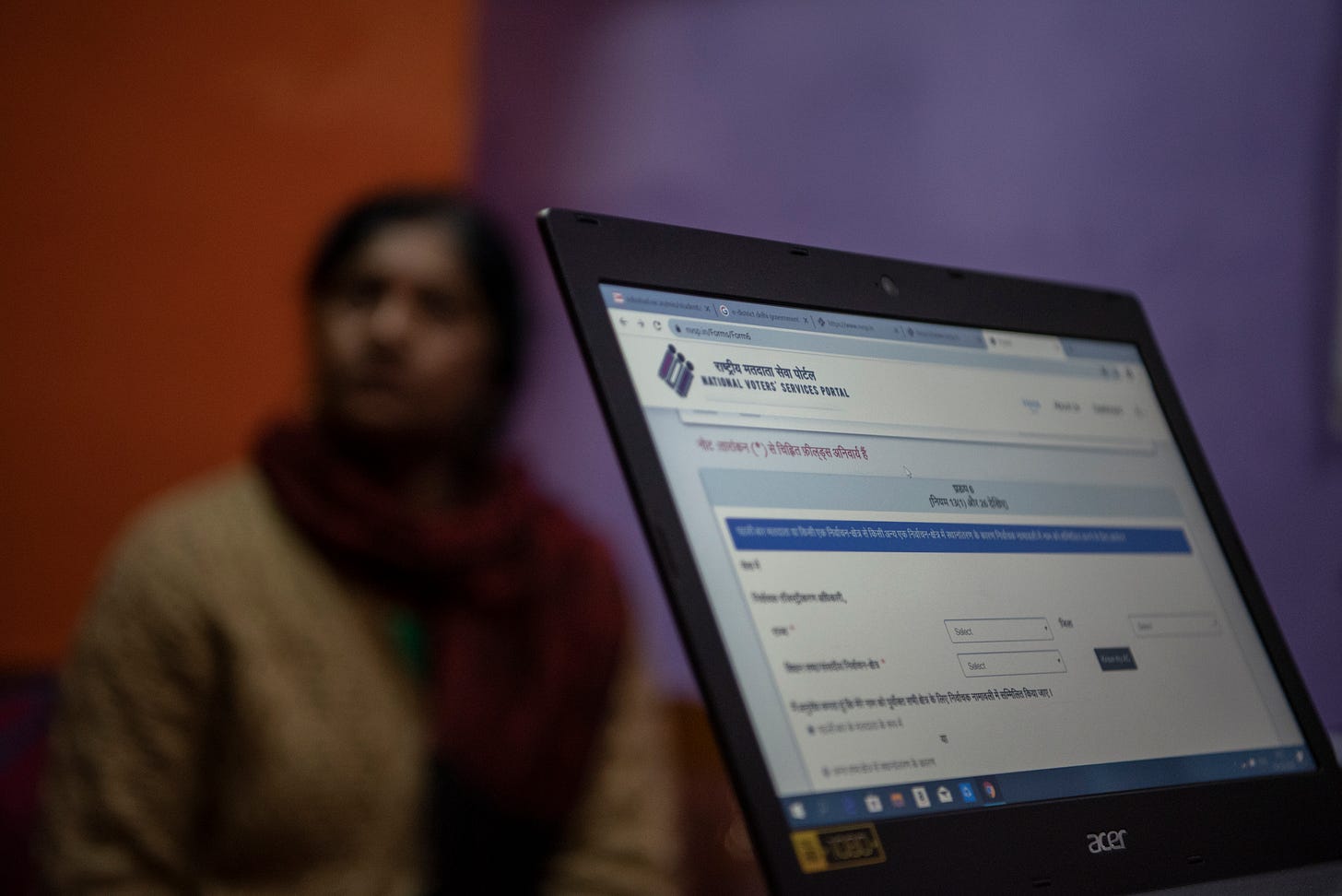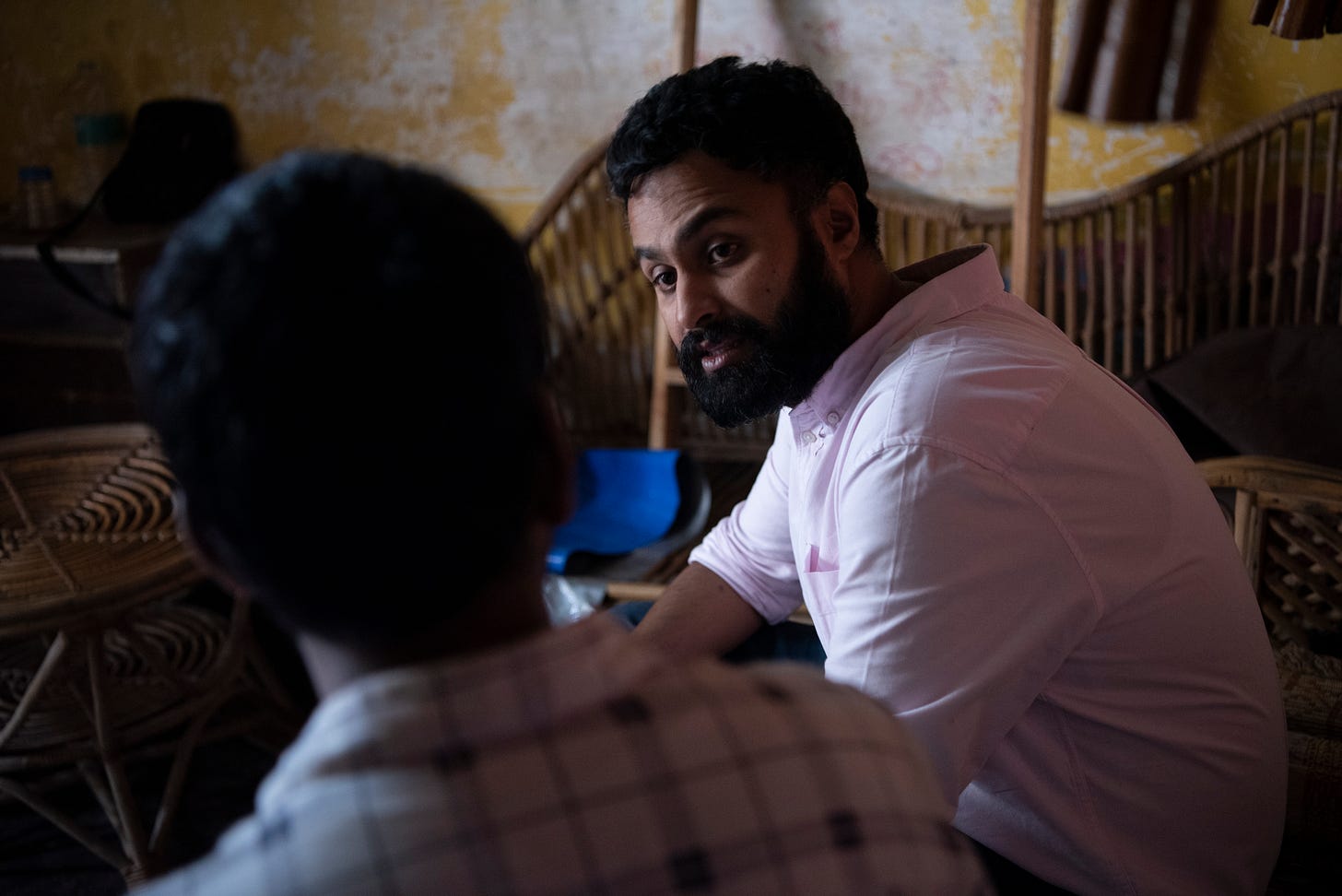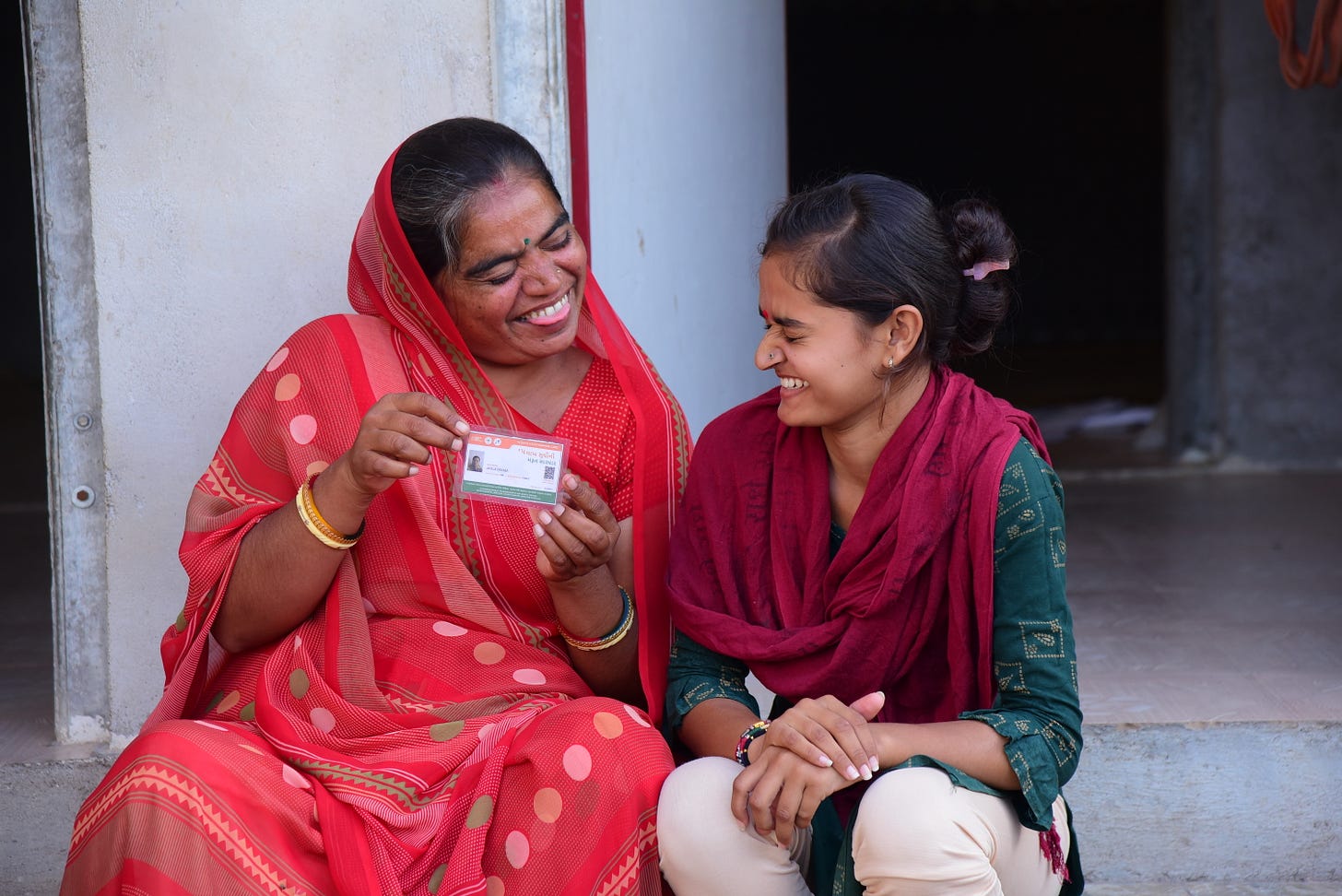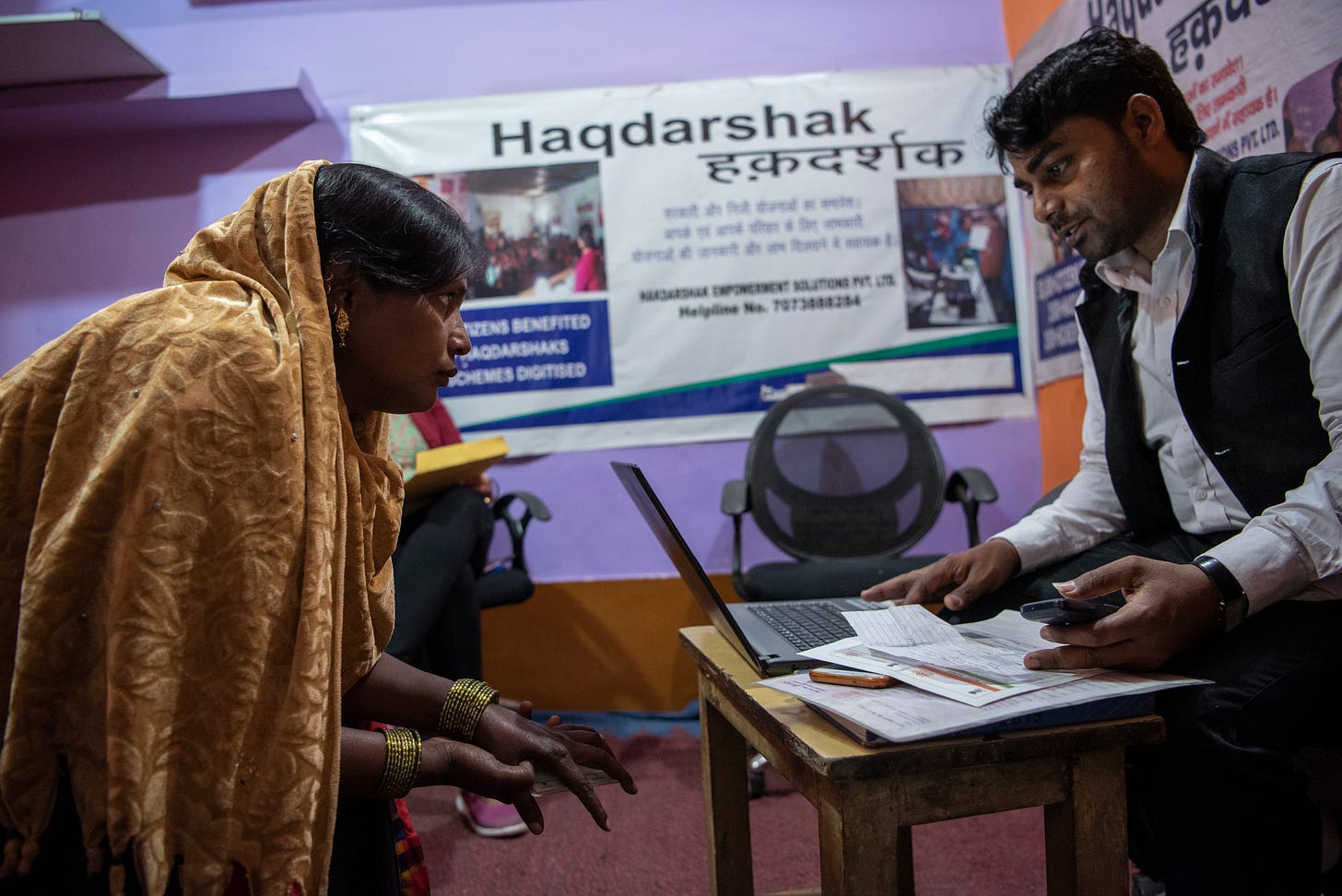Spotlight: Haqdarshak
Using technology, people and community to ensure last-mile delivery of rights and entitlements for all

Ideally, everything a state does for its citizens should automatically reach the citizens entitled to those rights. But this doesn’t happen in India.
How do citizens access information about schemes they are eligible for?
How do they know the application process?
How do they navigate bureaucracy, corruption and the tedious processes to access schemes?
How do they track the benefits they are entitled to?
Where do they go for grievance redressal?
Five Hundred Schemes: One portal
A citizen has to go to five different websites to get information relating to social benefit schemes available to them from the central or local governments. Then they have to read complicated documents to understand what they are eligible for and know exactly where to go to secure them. Even then, the problems don’t truly end, as each scheme may require several documents, the filing of several papers, and follow-ups which can be cumbersome for citizens, especially marginalised citizens.
Aniket Doegar, the founder of Haqdarshak, saw this huge gap between the schemes available to the people of India and the relevant information that is accessible.
To make citizen access to such schemes easier, Haqdarshak created an AI-based platform to scan all relevant government websites for social benefit schemes and update them regularly.
Its AI-based rule engine allows laypeople to easily search and filter to discover what they are eligible for, even better, in their local language. So one can just put their details such as age and location, answer specific prompts and questions, and find out what schemes they are entitled to under current policies.
Haqdarshaks: a new cadre of justicemakers
A citizen’s more significant challenge is last-mile connectivity to securing their rights and entitlements. Application forms need to be filled correctly and then submitted to the right authorities - and they need to be continuously followed up on. The document signatures need to match; additional documents may be required from local authorities - the challenges are many and confounding. Very often, even before application forms can be filled, citizens realise they need essential identity documents like Aadhaar etc. and need help getting that. The more marginalised communities, often surviving on daily-wage labour, don’t have the time or access to the necessary means to do this.
Thus, Aniket realised that information alone left citizens with many challenges, especially on the documentation and process front. “Nobody was focusing on documentation for scheme delivery as a service. So that’s where in 2017-18, we decided to start service on our own,” says Aniket. Thus, Haqdarshaks came into being, a body of local community workers who are paid basic sustenance by the organisation to provide such services to the citizens.
Haqdarshaks, the majority of whom are women, can reach out to the communities to provide end-to-end solutions for accessing government welfare schemes. Haqdarshaks also mobilise such services to go beyond individual citizens and help Micro, Small & Medium Enterprises (MSMEs) access their rights and benefits. They help each individual and MSME at every stage, from the micro-details of various documentation and processes requiring completion to the process of applying for the scheme.
With volunteers on the ground, Haqdarshak transformed from being just a product and information supplier to a deliverer of service with the ability to support each citizen’s access to eligible social security. Over twenty-five thousand Haqdarshaks have been trained by the organisation, which has allowed them to impact more than twenty-five lakh individuals and over thirty-five thousand MSMEs across twenty-four-plus states. The organisation’s work has unlocked scheme benefits of over four thousand crores of rupees.
Tracking the benefits
It should be easy for citizens to track their applications for various schemes and get information on newer schemes they are eligible for.
To make this easier, they introduced a card system personalised for each individual or MSME to store and track information on benefits received and provided.
The cards are a huge step forward, allowing each citizen to have one card to track their government benefits - but there is still much to be done, Aniket feels. While some information is easy to trace, without direct or automatic information from the banks on account updates, such information also has to be updated manually. He has been looking towards the Reserve Bank of India and other banks to implement policies to ensure these cards become easy-to-use utilities in the future.
How the Yojna Card Works
“We will be able to use the Haqdarshak app end-to-end right from discovery to application and also tracking. The Yojna card then makes more sense because, the card after that one time sort of screening, any time I take the card to a Haqdarshak or a Haqdarshak franchise partner or to a yojna to scan the QR code, all my data is there and whatever services I want, can be utilised.”*
Creating Feedback-loops
Rights and grievances are two sides of the same coin. As Haqdarshak enabled more citizens to secure their rights, more grievances surfaced too.
And this is where Yojna Kendras came in. These Kendras are physical spaces where Haqdarshaks congregate, and citizens come to request help or register grievances. Thousands of applicants come in, not knowing how to process underlying documents such as BPL (Below Poverty Line) cards or Aadhaar. The issues may be as simple as date mismatches or as complicated as obtaining paperwork for beneficial loans for the MSMEs - they look towards the Haqdarshaks for guidance.
These Yojna Kendras enable Haqdarshaks to reach thousands of citizens from one centre, making their service delivery more efficient and demand-driven.
Haqdarshak continues to grow, aiming to reach more citizens who need their help and ensure that the citizens continue to get the benefits available to them in the future.
Note:
Madura Karnik, Chief Growth Officer, Haqdarshak, in conversation with Supriya Sankaran during Agami Prize 2022.
Edited by Jahnavi Jayanth, Keerthana Medarametla and Supriya Sankaran.








